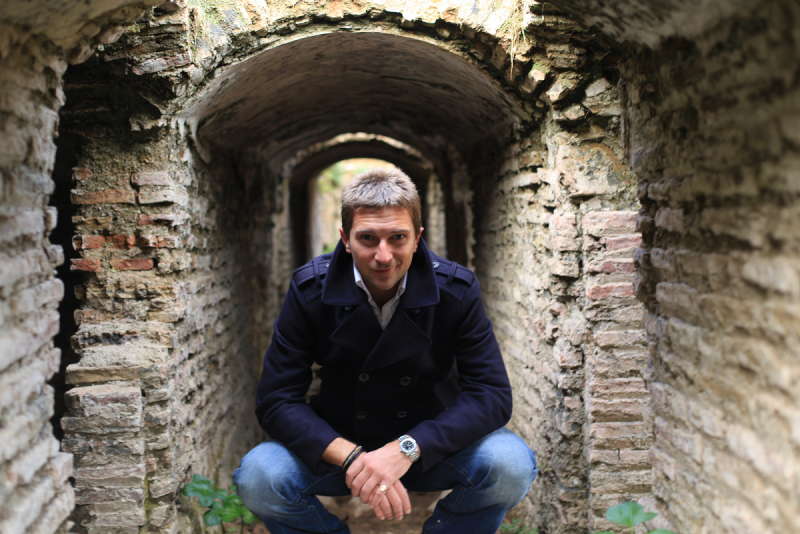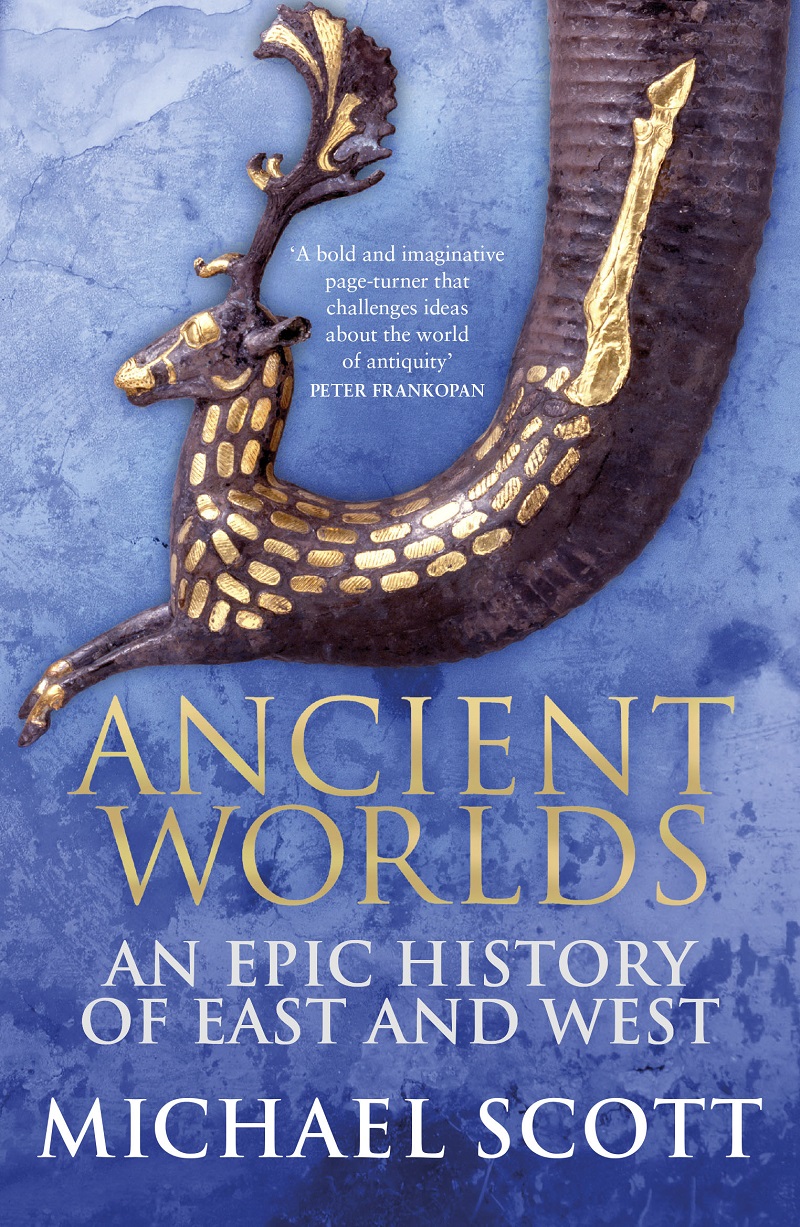Dr Michael Scott: How to make the most of globalisation | reviews, news & interviews
Dr Michael Scott: How to make the most of globalisation
Dr Michael Scott: How to make the most of globalisation
We urgently need to learn more about our globalised past, argues the historian

The Guardian called Brexit “a rejection of globalisation.” That’s as may be, but the reality is we cannot, however much we might want to, check out of the globalised world in which we live. Globalisation has defined the 20th and 21st century and while the future is uncertain, one thing we can sure about is that it will continue to become ever more inter-connected.
The question is: how best to prepare ourselves to make the most of it? This is a newly personal question for me, having become a father for the first time in 2016, with my mind now turning more and more not just to how I think about and interact with the world, but about how to prepare the next generation to be able to do so.
My job is to research and teach undergraduate and postgraduates students about the ancient world. For many, globalisation is not a term you can apply to the ancient world (some argue before 1571 the world was not globalised – that’s when Manila was set up as a Spanish emporium connecting Eastern Eurasia and Americas). But to my mind, that does not reflect the reality: elephant tusk from Asia was recently found in a Neolithic workshop in Spain (dating back 4,000 years). Interaction, migration, trade – all hallmarks of our globalised world – have in reality always been a crucial part of our human story.
 But – as I have come to realise over the last couple of years as I have worked on my most recent book project Ancient Worlds – that is not how we study history. History – like many disciplines – is divided into (in our case geographical or temporal) topic areas in which UGs, PGs, Researchers become experts. The very system of study of our past is set up to discourage us to think about the ways in which societies interconnected with one another. When I first pitched the book idea for Ancient Worlds – a book focusing on the ways in which ancient cultures from the Mediterranean to China came into permanent contact with one another from 6th century BCE to 4th century AD – the first question that came back was "which shelf would this sit on in the bookshop?" Our desire to demarcate and pigeonhole the past is engrained not just in the way we think about it, but about how we market it, package it and sell it.
But – as I have come to realise over the last couple of years as I have worked on my most recent book project Ancient Worlds – that is not how we study history. History – like many disciplines – is divided into (in our case geographical or temporal) topic areas in which UGs, PGs, Researchers become experts. The very system of study of our past is set up to discourage us to think about the ways in which societies interconnected with one another. When I first pitched the book idea for Ancient Worlds – a book focusing on the ways in which ancient cultures from the Mediterranean to China came into permanent contact with one another from 6th century BCE to 4th century AD – the first question that came back was "which shelf would this sit on in the bookshop?" Our desire to demarcate and pigeonhole the past is engrained not just in the way we think about it, but about how we market it, package it and sell it.
Thankfully, we are on the cusp of change. There is now a growing "global history" bookshelf in shops which books like Ancient Worlds, or Peter Frankopan’s Silk Roads, can sit on. My university, Warwick, has a Global History and Culture Centre for the study of modern – and now ancient – global connectivity. I am introducing a new teaching module for undergraduates, which examines ancient global interaction, and I am developing with Warwick a new online portal for the public to be able to investigate how ancient worlds from the Med to China came into contact.
So if we are winning the battle at undergraduate and research level, how about at school and in the wider public view point? Global history studies as we have them today began in the aftermath of World War One as an antidote to future conflict. HG Wells – better known as the father of science fiction – wrote, in a series of newspaper articles that were collected into a book in the 1920s called "An Outline of History", about the need for everyone to be given a way into thinking about how we have connected globally in our past. That is still a work in progress. In 1946, UNESCO began a project to create books for 15 year olds that demonstrated what their country (they began with France) owed to others. The prototype for France was not completed until a decade ago and the experiment was never expanded.
In the UK, GCSE and A-level history curricula still remain – for reasons of efficacy in teaching and assessment (important of course in themselves) – resolutely tied to particular geographical or chronological topics areas. There is little emphasis on issues of global inter-connectivity, no attempt to link up these isolated silos of knowledge (my school history teacher used to explain it to me as "getting in a spaceship and landing somewhere, learning about something, and then getting in the spaceship again to head to another galaxy".)
But that too may be about to change. The OECD runs a programme called PISA – Programme for International Student Assessment – which looks at how the teaching and assessment of 15 year olds across 80 countries prepares them for the their future. In 2018 – the next assessment date – they will be adding a new criteria to the PISA investigation, which will sit alongside key criteria such as numeracy and literacy: global competency. How are we preparing our children to be globally competent? It’s a challenging question – and one that I welcome. And the study of history is ready, able, and I believe willing, to meet that challenge.
- Ancient Worlds: An Epic History of East and West by Michael Scott (Windmill Books, £9.99)
- Sicily: Wonder of the Mediterranean presented by Michael Scott begins on BBC Two at 9pm on 31 January
Explore topics
Share this article
The future of Arts Journalism
You can stop theartsdesk.com closing!
We urgently need financing to survive. Our fundraising drive has thus far raised £49,000 but we need to reach £100,000 or we will be forced to close. Please contribute here: https://gofund.me/c3f6033d
And if you can forward this information to anyone who might assist, we’d be grateful.

Subscribe to theartsdesk.com
Thank you for continuing to read our work on theartsdesk.com. For unlimited access to every article in its entirety, including our archive of more than 15,000 pieces, we're asking for £5 per month or £40 per year. We feel it's a very good deal, and hope you do too.
To take a subscription now simply click here.
And if you're looking for that extra gift for a friend or family member, why not treat them to a theartsdesk.com gift subscription?

Add comment